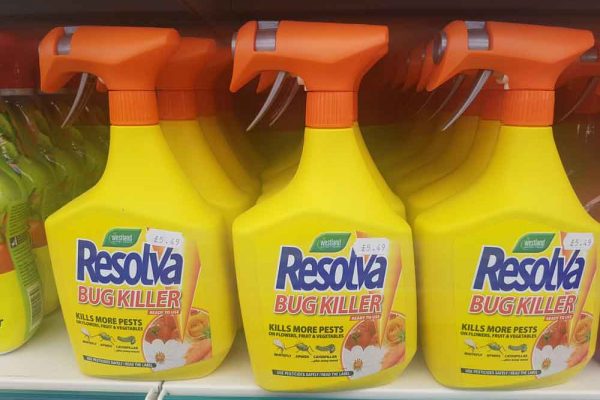
Plagued with pests? Bothered by bugs? We can help! Not only can you ask our team of experts in store 7 days a week for help tackling common garden pests, we also stock a wealth of bug control products to get you on your way to a peaceful, healthy garden.
Changes in the weather and local environmental conditions can have a huge impact on which pests invade your garden and how hard they will be to get rid of. Below we address some of the most common pests and bugs and advise you on how to beat them.
Aphids
Aphids feed on plant sap and leave behind a sticky residue wherever they go. Aphids become a real problem if winters are mild as their numbers can rapidly increase and continue into the spring before ladybirds and other predators arrive to establish equilibrium. You can water aphids off your precious leaves throughout the spring until handy predators appear to help you out. You can also encourage other predators such as hoverflies into your aphid areas by placing Californian poppies between your affected plants.
Snails and Slugs
Slugs and snails are the most common and most difficult garden pest due to the damp climate we endure in Britain.
- As slugs eat through the night and need moisture throughout the daytime, reducing their hiding places by keeping borders weed-free and tidy can help. Remove decaying leaves and refrain from planting things like lettuce close to walls or edges. These are slug favourites so planting them in dark, damp spots can further encourage the pests to set up camp.
- Leaving a plank of wood in affected areas can help to trap slugs as they will collect underneath it during the night. In the morning, simply lift the plank and remove the slugs from your garden.
- Water your garden more thoroughly but reduce the frequency and try to do it in the morning. This ensures that soil surfaces are drier for longer, thus reducing ‘slug appeal’.
- If you choose to use slug pellets, please do so with care and consideration. Metaldehyde pellets should only be used in extreme weather and just one or two per plant is ample. Sprinkling lots of these around your garden is poisonous to local wildlife. Organic slug pellets are preferable but still pose issues as the agents they contain also harm important wildlife.
- In serious cases where pellets are the only option, we advise growing more perennials than annual plants as these are less susceptible to slugs and will minimise the environmental impact of heavy pellet use.
Butterflies and Moths
We’re huge believers in supporting and where possible encouraging Britain’s pollinator population here at Avant so, in this instance, we advocate protecting susceptible vegetables from these friendly bugs with mesh or netting. Just be aware that netting may hide pesky weeds from view, so regular checks are advised.
Please do consider creating some pollinator-friendly areas in your garden with the tips on our recent blog post which you can find here.
Leatherjackets
Leatherjackets are born from craneflies in autumn and damage lawns throughout spring by eating grass roots. To control these pests the only solution is nematodes, available in our store. Just remember to keep the soil moist for a fortnight after application. You can read more about the uses and benefits of nematodes by reading one of our earlier blog posts here.
For more product recommendations and gardening advice, ‘like’ our page on Facebook here.
Categories
- Diane's Blog (29)
- Events (4)
- Gardening To Do Lists (12)
- News (259)
- Past Events (30)
- Uncategorised (20)
Recent Posts
- Gardening Club at Avant – 13 March 10.30am 7th March 2024
- Compost Prices for the 2024 Season 7th March 2024
- Avant’s Christmas Menu 2023 16th December 2023
- New Cafe Opening Hours 8th May 2023
- Compost Prices 2023 22nd April 2023
- Christmas Opening Hours 2022 10th December 2022
- Platinum Jubilee Opening Hours at Avant 27th May 2022
- Easter 2022 Opening Hours 14th April 2022
